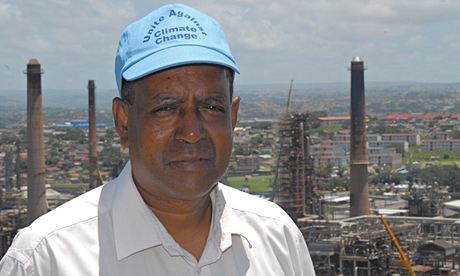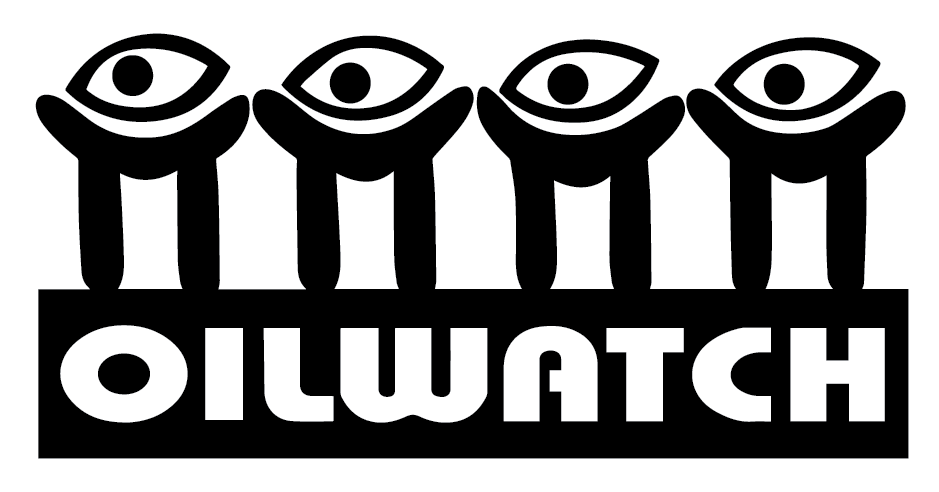MDG : 2014 Goldman Environmental Prize : outh Durban Community Environmental Alliance Desmond D’Sa
South Durban environmental alliance co-founder, Desmond D’Sa, recipient of the 2014 Goldman prize. Photograph: Jenny Bates for the Guardian

The smells drifting into the cramped office of the South Durban Community Environmental Alliance range from sweet and sickly to stomach-churning. Volunteers and others who work with the small group can see oil and gas plants, refineries, landfills, agro-chemical works, shipyards, paper mills and a massively expanding port.
“We have high levels of air pollution which would be unacceptable in the US or anywhere in the rich world. Nearly 70% of all South Africa’s industry is concentrated here. It stinks,” says Desmond D’Sa, who co-founded the coalition of environmental, community and church groups in 1995 and who this week has won a Goldman award, the world’s most valuable ($175,000) international prize for grassroots environment work.
D’Sa refers not just to the smells that waft around south Durban, but to the 300,000 people, including some of South Africa’s most disenfranchised, who must live cheek by jowl with more than 300 industrial plants. Many, like D’Sa’s own family, were forcibly moved there in apartheid days.
“I was 15 and we lived in Cato Manor, the biggest community of mixed folk in South Africa. It was a very radical place in the apartheid era. But mum and dad were brutally forced to move by the army and security forces. We were put in a truck, they bulldozed our house and suddenly the family of 13 had to live in four rooms in one of Africa’s most polluted places.”
Racial and environmental injustice went together, he says. “There were smokestacks everywhere, chemical works, emissions. We were gasping for breath. We began to understand something was very wrong.”
By the 1980s, south Durban had become known as “cancer alley” and the toxic capital of Africa, with the highest rates of cancer and asthma on the continent. More than 100 smokestacks belched out over 50m kg of sulphur dioxide each year, children in local schools had three times the rate of respiratory diseases as those living outside the area and nearly everyone had skin ailments and diseases.
The area is still massively polluted, he says, with regular chemical fires and innumerable leaks in the oil and gas pipelines that crisis cross the communities.
“Leukaemia is 24 times the normal there. My mother was ill for years. My brother died of cancer, my daughter has asthma. Eleven of the 12 families in the council block where I live have asthma. In every block you have around 50% of people who have respiratory problems. I still look out of my window and see refineries. I am a victim as much as anyone. We pay the price,” he says.
MDG : 2014 Goldman Environmental Prize : Desmond D’Sa South Durban Community Environmental Alliance Campaigns in south Durban have forced the government to introduce air pollution standards. Photograph: Rajesh Jantilal/AFP/Getty
Perhaps because of the grim physical environment, Cato Manor and then south Durban, where people were dumped, became an extraordinary hotbed for political resistance to social and environmental injustice. Only streets apart lived human rights activist Kumi Naidoo, now director of Greenpeace International, fellow 1998 Goldman prize winner Bobby Peek, who went on to advise Mandela on environmental issues, and Nkosazana Dlamini-Zuma, Mandela’s minister of health and now chair of the African Union Commission.
D’Sa, a former chemical worker and union leader, worked with Peek to organise the diverse south Durban communities to confront government and industry. He helped develop a “smell chart” to help people identify which toxic chemicals they were being exposed to, trained people to measure pollution and has taken companies to court and closed down hazardous waste sites. In 20 years of activism, D’Sa and his small army of local volunteers have forced government to introduce air pollution standards and got much of the industry in the area to switch from oil to gas.
Standing up to the authorities, however, has led to personal danger. His home has been firebombed by unknown people and because of constant threats, he lives apart from his family.
The biggest threat, he says, is the planned expansion of Durban port to a monster development able to handle 20m containers a year – nearly 10 times as many as today. It would mean south Durban becoming a construction site for decades, the devastation of several suburbs and an inevitable increase in crime, smuggling, prostitution and air pollution.
“It will bring major new roads, warehouses, railways. All the green space will go. We are not against development. We are against being bulldozed,” he says. “We thought we were free after Mandela came into government. Now we see the Zuma government retreating into nationalism and conservatism. Environmental injustice fits into all of this. We are promised jobs and better health. But people are not fooled any more.”

